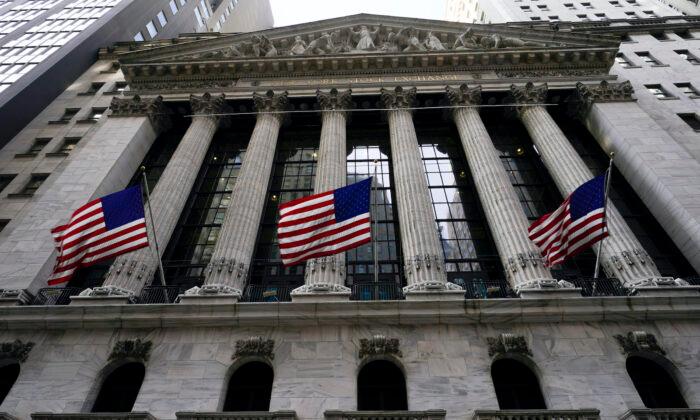Technology companies led a broad slide for stocks on Wall Street in afternoon trading Thursday, chipping away at the weekly gains for major indexes.
The S&P 500 fell 1.5 percent as of 1:48 p.m. Eastern, on pace for its first loss in three days. The Dow Jones Industrial Average fell 421 points, or 1.2 percent, to 34,512, and the tech-heavy Nasdaq composite fell 2.1 percent.
Nearly 80 percent of the stocks in the benchmark S&P 500 were in the red. The technology sector was the biggest drag on the index, along with communication stocks and companies that rely on consumer spending. Microsoft fell 2 percent, Facebook parent Meta slid 1.9 percent, and Nike fell 2 percent.
Bond yields fell and dragged banks lower. The yield on the 10-year Treasury fell to 1.98 percent from 2.04 percent late Wednesday. Bank of America shed 3.1 percent.
The benchmark S&P 500 is wobbling between a small gain and a small loss for the week, while the Dow is solidly in the red and the Nasdaq is holding onto a gain.
Markets have been unsettled all week by tensions in Ukraine, where Russian military forces have amassed at the border. U.S. President Joe Biden said there was a high risk that Russia would invade the country.
The potential for a military conflict in Europe made for volatile energy prices this week. Russia is a major energy producer and a military conflict could disrupt supplies and jolt markets. U.S. crude oil prices fell 2.6 percent.
Markets in Europe, which have been particularly sensitive to tensions in Ukraine, closed broadly lower.
Geopolitical tensions in Europe have only added to worries investors face as the Federal Reserve prepares to raise interest rates to fight persistently rising inflation.
Wall Street has been looking for clues about how much and how quickly the central bank will begin raising interest rates. The minutes from the latest meeting of Fed officials released on Wednesday showed that most policymakers suggested that a faster pace of increases in the benchmark short-term interest rate “would likely be warranted.”
Inflation has spiked to a 40-year high and companies have been dealing with supply chain problems and higher costs by raising prices on finished goods for consumers. Many have also warned investors that profits, sales, and overall operations will still be hurt by inflation.
The move to raise prices on goods has heightened concerns that consumers could eventually pull back spending, which could damage economic growth. Consumers haven’t pulled back yet, though, according to latest report from the Commerce Department showing that retail sales surged 3.8 percent in January as the threat of the omicron variant of COVID-19 faded.






Friends Read Free